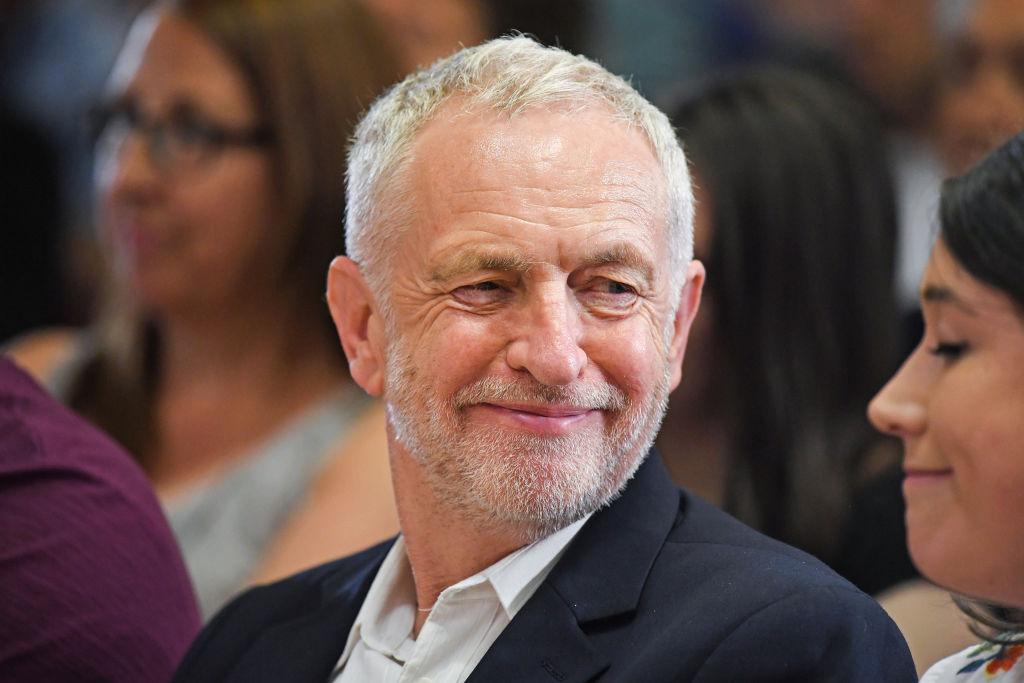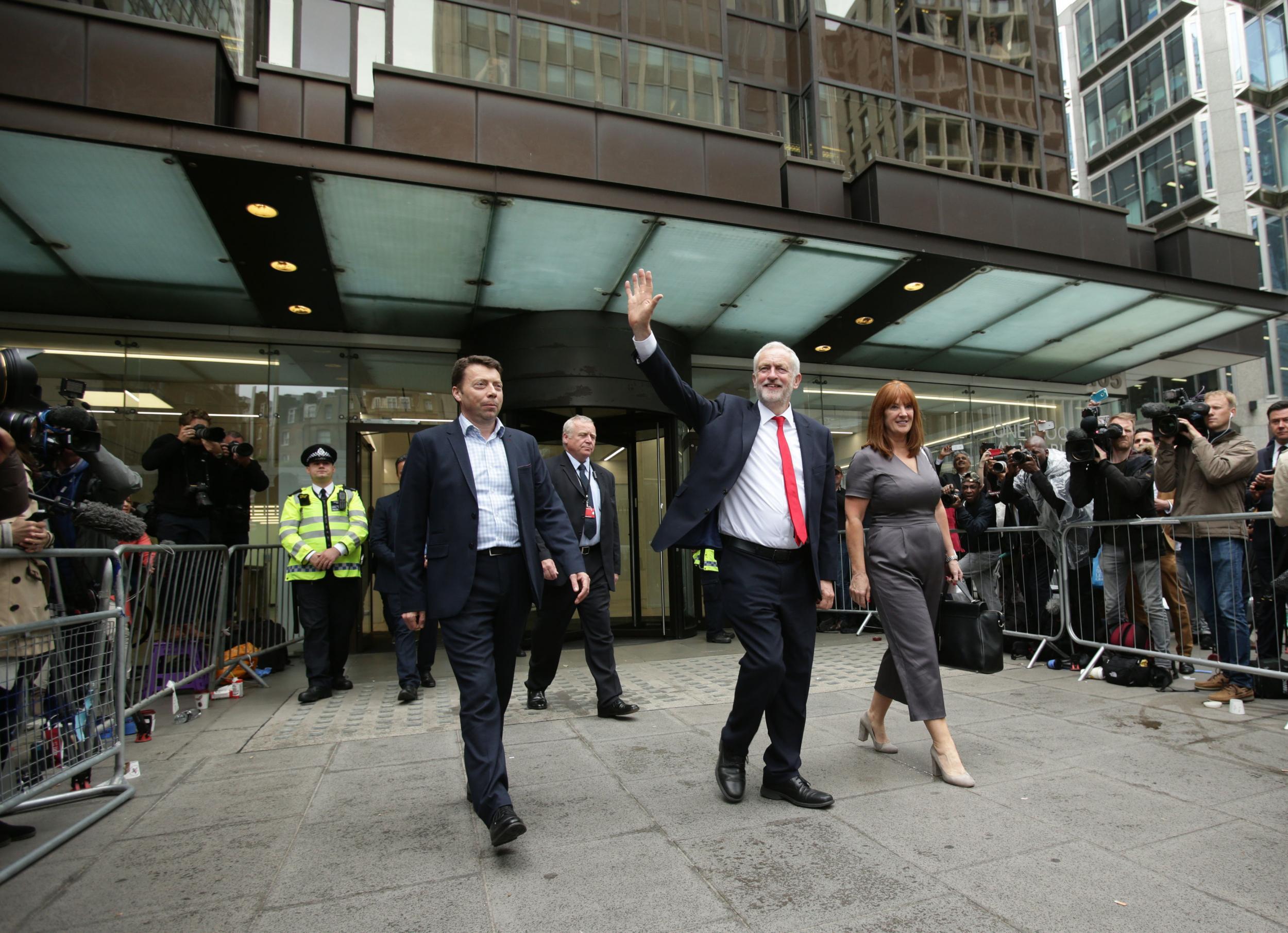Corbyn supporters attack Labour moderates for 'using targeted Facebook ads to trick him about own general election campaign'
'In 2017, Labour Party officials became so good at targeting Facebook ads, they were able to deceive Jeremy Corbyn about the kind of campaign they were running'

Your support helps us to tell the story
From reproductive rights to climate change to Big Tech, The Independent is on the ground when the story is developing. Whether it's investigating the financials of Elon Musk's pro-Trump PAC or producing our latest documentary, 'The A Word', which shines a light on the American women fighting for reproductive rights, we know how important it is to parse out the facts from the messaging.
At such a critical moment in US history, we need reporters on the ground. Your donation allows us to keep sending journalists to speak to both sides of the story.
The Independent is trusted by Americans across the entire political spectrum. And unlike many other quality news outlets, we choose not to lock Americans out of our reporting and analysis with paywalls. We believe quality journalism should be available to everyone, paid for by those who can afford it.
Your support makes all the difference.Jeremy Corbyn’s former spokesperson has blamed Labour HQ for hobbling his election campaign following claims senior party staff used targeted Facebook adverts to mislead the leader about what messages were being sent to voters.
It has been alleged Labour Party campaign chiefs secretly refused to run campaigns Mr Corbyn and his closest aides wanted in 2017 – and instead of running the national advertising they were supposed to, simply put targeted adverts in personal Facebook feeds belonging to the leader and his acolytes to give them the false impression they had been widely disseminated.
Since last year’s election, Mr Corbyn has tightened his grip on the party, with Iain McNicol replaced as general secretary by left-wing unionist Jennie Formby, in a move that heralded a new era for Labour with those on the right of the party pushed firmly to the sidelines.
In 2017, however, many top officials were hostile to Mr Corbyn. In order to deceive him and his team, Labour HQ paid for personalised ads to be seen by the party leader, his aides and favoured journalists, while spending far more money on adverts with another message for ordinary voters, according to claims made in a new book by former staffer Tom Baldwin that were reportedly confirmed by party sources.
“In 2017, Labour Party officials became so good at targeting Facebook ads, they were able to deceive Jeremy Corbyn about the kind of campaign they were running,” wrote Mr Baldwin, the author of Ctrl Alt Delete: How Politics and the Media Crashed Our Democracy, in the Sunday Times.
“When they were told to pay for nationwide ads they regarded as madcap, such as one on voter registration, they made sure that few saw such messages except a tiny slice of left-wing activists.”
Mr Baldwin, who was former leader Ed Miliband’s director of communications, said that a former staffer told him: “If it was there for them, they thought it must be there for everyone. It wasn’t. That’s how targeted ads can work.”
The allegations caused anger and frustration among Corbyn loyalists, who said such behaviour may have cost Mr Corbyn the chance to oust Theresa May and enter Downing Street, rather than just obliterating her parliamentary majority.
“Before the 2017 election, I remember rebutting endless stories that could only have come from selective leaking by HQ, so this latest revelation is no surprise,” Matt Zarb-Cousin, Jeremy Corbyn’s former spokesman, told The Independent.
“If every member of staff at Labour HQ just got on with their jobs, Labour might be in government now. Thankfully, next time an election comes around everyone will be pulling in the same direction, giving Labour the best possible chance of winning.”
This sense of frustration was echoed by various other party sources. “Our experiences with the press office were seriously unproductive and bordering on obstructionist while my boss was a shadow frontbencher,” said a Labour staffer.

“Before the election it often felt like our shadow team were essentially expected to manage everything on our own with barely any money or coordination from Southside. Now things are being done far more professionally,” they said.
“That’s partly because [the leader of the opposition’s office] expertise has got better but also because Southside have realised they needed to sort themselves out now that Iain McNicol’s gone. Or risk getting the sack”
The claims demonstrate the divisions within the Labour Party during the last election and corroborate longstanding accusations from left-wing activists that Blairite staffers sought to undermine Mr Corbyn’s campaign.
A Labour source said: “It’s bizarre that anyone would undermine plans to advertise voter registration during a general election.
“Despite fighting with one hand tied behind our backs by some uncooperative senior staff, we achieved the largest increase in Labour’s vote since 1945.
“At the next election, we’ll have a fantastic and co-operative party machine to match our incredible mass membership and popular policies.”
Videos posted on Jeremy Corbyn and Momentum’s social media pages completely outperformed those on Labour’s channel, demonstrating the comparative inadequacy of their digital campaign.
It is understood Jeremy Corbyn’s page had 18 videos with over a million views, Momentum produced 12 and Labour had just two; while on Twitter, content shared on Mr Corbyn’s page garnered almost five times as many retweets than Labour’s.
Mr Baldwin advocated for a ban on political advertising on the internet and cited the tradition in the UK, in contrast to the US, to not allow political attack ads on TV.
“What is needed is a ban on political advertising on the Internet,” he wrote. “In America, such a restriction would certainly fall foul of first amendment rights on free speech, but the UK has a tradition stretching back to the 1950s that bars political attack ads appearing on TV.
“British politics has been better for it and we cannot allow an even more insidious form of advertising to take over now.”
Mr Baldwin acknowledged that although any such extension of Britain’s ban on broadcast political ads would not stop parties producing videos or messages “it would mean their viral success would depend on the strength of a message rather than the amount being spent or the precision of their data”.
At the Durham Miners’ Gala on Saturday, Mr Corbyn jokingly told a supporter: “This year we will have a general election... when we fight, we win.”
Join our commenting forum
Join thought-provoking conversations, follow other Independent readers and see their replies
Comments